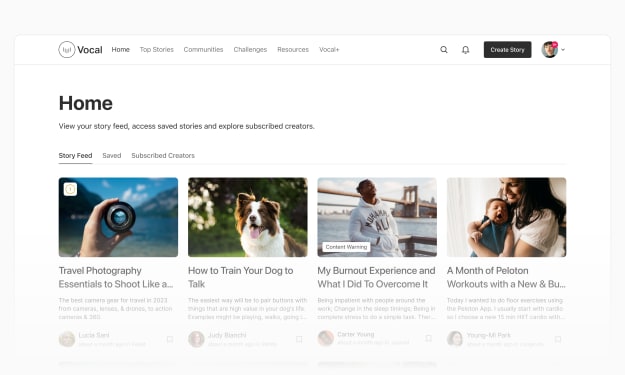Top 10 Fantasy Sports Developer Tools You Need to Know

Introduction:
Fantasy sports have revolutionized the way fans engage with their favorite sports leagues, offering immersive digital experiences that blur the lines between reality and virtuality. Behind the scenes of these captivating platforms lie a myriad of developer tools that power innovation and drive user engagement. In this article, we'll explore 10 essential tools that every fantasy sports developer should know, from backend frameworks to data analytics platforms, equipping you with the resources needed to excel in this dynamic field.
1. Django:
Django stands as a cornerstone for many fantasy sports platforms, providing a robust and scalable framework for backend development. With its clean design, powerful ORM (Object-Relational Mapping), and extensive documentation, Django streamlines the development process, allowing developers to focus on crafting feature-rich applications. Its built-in authentication system, admin panel, and support for RESTful APIs make it an ideal choice for building secure, high-performance fantasy sports platforms.
2. React:
As the landscape of frontend development continues to evolve, React has emerged as a go-to choice for building interactive user interfaces in fantasy sports applications. Its component-based architecture, virtual DOM, and state management capabilities enable developers to create dynamic, responsive UIs with ease. Whether crafting real-time scoring dashboards or immersive lineup editors, React empowers developers to deliver seamless user experiences across devices and platforms.
3. Firebase:
Firebase offers a comprehensive suite of tools for building and scaling backend infrastructure, managing user authentication, and facilitating real-time data synchronization in fantasy sports applications. Its authentication services, cloud functions, and Firestore database enable developers to focus on delivering value to users without getting bogged down by infrastructure management. With Firebase, developers can seamlessly integrate features like live updates, push notifications, and social authentication into their fantasy sports platforms.
4. Sportsdata IO:
It provides a wealth of sports data APIs that empower fantasy sports developers to access comprehensive, real-time data feeds from major sports leagues worldwide. From player statistics and injury updates to game schedules and live scores, SportsDataIO offers a treasure trove of information that fuels the gameplay experience. By integrating SportsDataIO's APIs into their platforms, developers can ensure accuracy, reliability, and timeliness of sports data, enhancing user engagement and retention.
5. Chart.js:
Data visualization plays a crucial role in fantasy sports applications, helping users make informed decisions and derive insights from complex datasets. Chart.js, a lightweight JavaScript library, offers a simple yet powerful solution for creating dynamic, interactive charts and graphs. Whether displaying player performance trends, team standings, or matchup projections, Chart.js enables developers to convey information effectively and intuitively, enhancing the overall user experience.
6. AWS Lambda:
AWS Lambda revolutionizes the way developers deploy and scale serverless applications, offering a cost-effective and scalable solution for executing code in response to events. Fantasy sports developers can leverage AWS Lambda to power backend processes such as player updates, scoring calculations, and notification workflows, without the need to provision or manage servers. With its seamless integration with other AWS services and pay-per-use pricing model, AWS Lambda empowers developers to focus on innovation and agility.
7. Fantasy Data API:
Fantasy Data API offers a comprehensive suite of sports data APIs tailored specifically for fantasy sports developers. From player statistics and fantasy projections to historical data and injury updates, Fantasy Data API delivers real-time insights that drive gameplay experiences. With its RESTful architecture and developer-friendly documentation, Fantasy Data API enables developers to quickly integrate rich sports data into their fantasy sports platforms, enhancing user engagement and immersion.
8. Redux:
Managing state in complex frontend applications can be challenging, especially in the context of real-time sports data and user interactions. Redux, a predictable state container for JavaScript apps, provides a centralized solution for managing application state and data flow. Fantasy sports developers can leverage Redux to maintain a single source of truth for player lineups, game scores, and user preferences, ensuring consistency and reliability across the platform.
9. Heroku:
Heroku offers a platform-as-a-service (PaaS) solution for deploying, managing, and scaling web applications with ease. Fantasy sports developers can leverage Heroku to streamline the deployment process, from initial setup to production deployment and beyond. With its support for popular programming languages, seamless integration with Git, and automatic scaling capabilities, Heroku enables developers to focus on building great fantasy sports experiences without worrying about infrastructure management.
10. Google Analytics:
Understanding user behavior and engagement is essential for optimizing fantasy sports platforms and driving user retention. Google Analytics offers a powerful suite of tools for tracking user interactions, analyzing audience demographics, and measuring key performance metrics. Fantasy sports developers can leverage Google Analytics to gain insights into user acquisition channels, user engagement patterns, and feature usage, guiding iterative improvements and strategic decision-making.
Conclusion:
As the fantasy sports industry continues to evolve and innovate, developers play a crucial role in shaping its future. By leveraging the right tools and technologies, fantasy sports developers can create immersive, engaging platforms that captivate users and elevate the sports entertainment experience. Whether building backend infrastructure with Django and Firebase, visualizing data with Chart.js, or analyzing user behavior with Google Analytics, these 10 tools are essential for success in the dynamic world of fantasy sports development.
About the Creator
Enjoyed the story? Support the Creator.
Subscribe for free to receive all their stories in your feed. You could also pledge your support or give them a one-off tip, letting them know you appreciate their work.





Comments
There are no comments for this story
Be the first to respond and start the conversation.